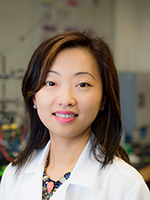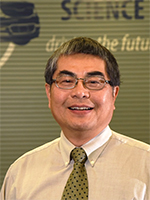Short Course at ECS meetings
Designing better materials for rechargeable batteries requires understanding of the many physical processes that determine their performance. The aim of the course is to provide a foundation for understanding key materials science and engineering issues underpinning the behaviors of electrode and electrolyte materials for rechargeable batteries. With the relevant examples, the course will further illustrate how the direction integration of first principles computation with advanced experimental characterization can accelerate the pace of discovering and optimizing new higher energy/power density materials for electrochemical energy storage
Course outline
- A brief history of electrochemical energy storage
- Thermodynamics foundation for electrochemistry
- Crystal structures and condensed matter physics for understanding battery materials
- Phase transformation & kinetics in electrode materials
- Liquid electrolytes vs. solid electrolytes
- First principles computation and it role in battery materials research
- Electronic structure and transport properties
- Nano-scale phenomena in batteries
- Advanced operando characterization for energy devices
- Importance of Interface and Surfaces
- Safety and mitigation strategies in rechargeable batteries
About the instructors
 Y. Shirley Meng holds the Zable Chair Professor in Energy Technologies and professor in NanoEngineering at University of California San Diego (UCSD). She received her Ph.D. in Advance Materials for Micro & Nano Systems from the Singapore-MIT Alliance in 2005, after which she worked as a postdoc research fellow and became a research scientist at MIT. Dr. Meng’s research focuses on the direct integration of experimental techniques with first principles computation modeling for developing new materials and architectures for electrochemical energy storage. She is the founding Director of Sustainable Power and Energy Center (SPEC), consisting faculty members from interdisciplinary fields, who all focus on making breakthroughs in distributed energy generation, storage and the accompanying integration-management systems. She received several prestigious awards, including C.W. Tobias Young Investigator Award of The Electrochemical Society, BASF Volkswagen Electrochemistry Science Award, Frontier of Innovation Award and NSF CAREER Award. Dr. Meng is the author and co-author of more than 130 peer-reviewed journal articles, one book chapter and four patents. Web: http://smeng.ucsd.edu/ and http://spec.ucsd.edu/
Y. Shirley Meng holds the Zable Chair Professor in Energy Technologies and professor in NanoEngineering at University of California San Diego (UCSD). She received her Ph.D. in Advance Materials for Micro & Nano Systems from the Singapore-MIT Alliance in 2005, after which she worked as a postdoc research fellow and became a research scientist at MIT. Dr. Meng’s research focuses on the direct integration of experimental techniques with first principles computation modeling for developing new materials and architectures for electrochemical energy storage. She is the founding Director of Sustainable Power and Energy Center (SPEC), consisting faculty members from interdisciplinary fields, who all focus on making breakthroughs in distributed energy generation, storage and the accompanying integration-management systems. She received several prestigious awards, including C.W. Tobias Young Investigator Award of The Electrochemical Society, BASF Volkswagen Electrochemistry Science Award, Frontier of Innovation Award and NSF CAREER Award. Dr. Meng is the author and co-author of more than 130 peer-reviewed journal articles, one book chapter and four patents. Web: http://smeng.ucsd.edu/ and http://spec.ucsd.edu/
 Bor Yann Liaw is manager of the Energy Storage and Advanced Vehicles Department at Idaho National Laboratory. Before joining INL, Dr. Liaw was a specialist and tenured faculty member at the Hawaii Natural Energy Institute of the University of Hawaii at Manoa. He received his bachelor’s in chemistry from the National Tsinghua University in Taiwan, his master’s in chemistry from the University of Georgia, and his doctorate in materials science and engineering from Stanford University. He conducted his post-doctoral fellowship research at the Max-Plank Institute of Solid State Research in Stuttgart, Germany. For the past three decades, Dr. Liaw has been involved in R&D projects related to electric and hybrid vehicle evaluation and advanced battery diagnostics and prognostics. His major research activities comprise laboratory and real-life battery and vehicle testing, data collection and analysis, battery modeling and simulation, battery performance and life prediction, battery rapid charging technology development, and battery diagnoses and prognoses. He also expanded his endeavors to bio-fuel cells, including sugar-air alkaline battery development, and transforming ambient energy resources into useful power sources for portable or stationary applications. Dr. Liaw has co-authored more than 150 technical papers, seven book chapters, and eight patents and patent applications. He is currently an associate editor for the Journal of The Electrochemical Society and a Fellow of The Electrochemical Society.
Bor Yann Liaw is manager of the Energy Storage and Advanced Vehicles Department at Idaho National Laboratory. Before joining INL, Dr. Liaw was a specialist and tenured faculty member at the Hawaii Natural Energy Institute of the University of Hawaii at Manoa. He received his bachelor’s in chemistry from the National Tsinghua University in Taiwan, his master’s in chemistry from the University of Georgia, and his doctorate in materials science and engineering from Stanford University. He conducted his post-doctoral fellowship research at the Max-Plank Institute of Solid State Research in Stuttgart, Germany. For the past three decades, Dr. Liaw has been involved in R&D projects related to electric and hybrid vehicle evaluation and advanced battery diagnostics and prognostics. His major research activities comprise laboratory and real-life battery and vehicle testing, data collection and analysis, battery modeling and simulation, battery performance and life prediction, battery rapid charging technology development, and battery diagnoses and prognoses. He also expanded his endeavors to bio-fuel cells, including sugar-air alkaline battery development, and transforming ambient energy resources into useful power sources for portable or stationary applications. Dr. Liaw has co-authored more than 150 technical papers, seven book chapters, and eight patents and patent applications. He is currently an associate editor for the Journal of The Electrochemical Society and a Fellow of The Electrochemical Society.
